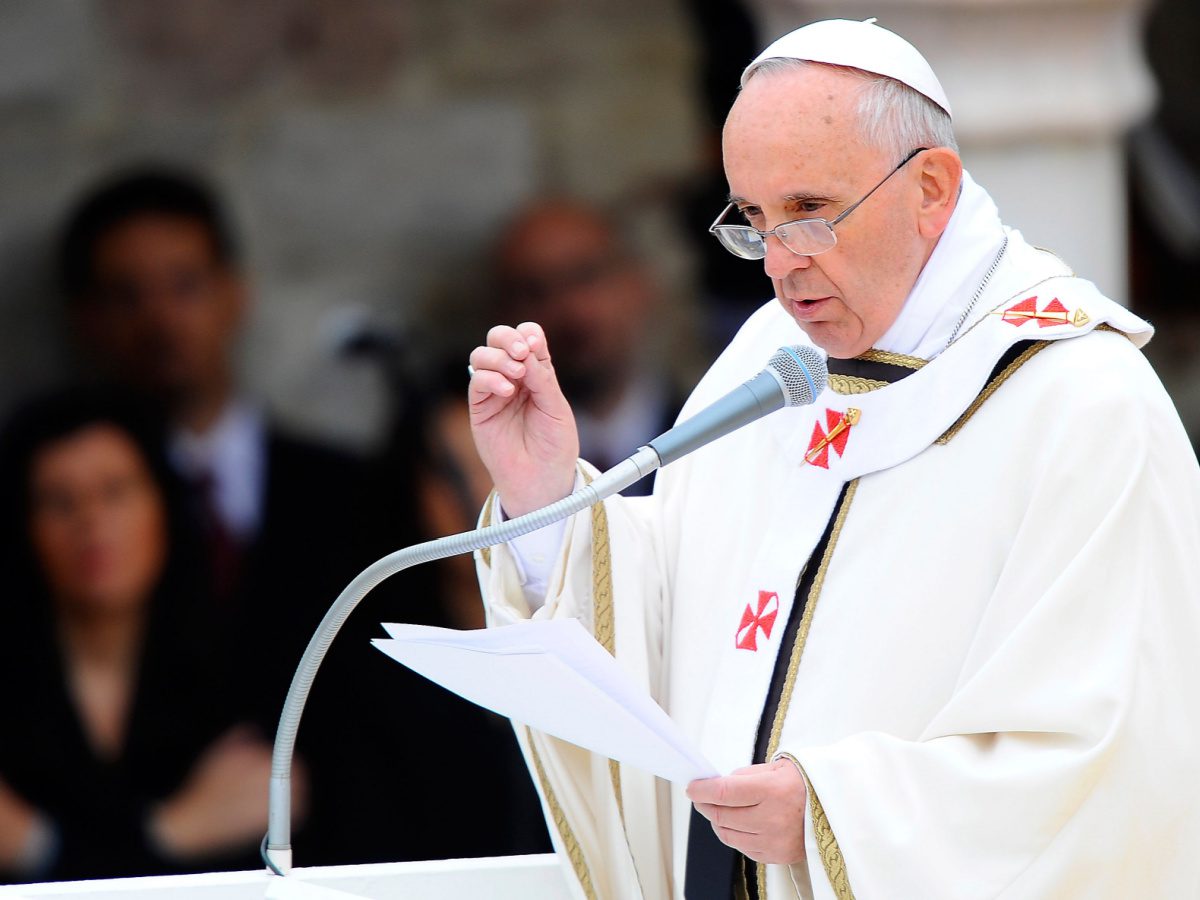
Pope Francis said he sees “hypocrisy” in criticism of his decision to let priests bless same-sex couples, possibly his most strongly worded defense of the move. LGBT blessings were authorized by a Vatican document called Fiducia Supplicans, or Supplicating Trust, but that was met with significant resistance in the Catholic Church, mainly from African bishops.
Francis told the Italian Catholic magazine Credere, Nobody gets scandalized if I give my blessings to a businessman who perhaps exploits people, and this is a very grave sin. But they get scandalized if I give them to a homosexual. This is hypocrisy.” Credere released extracts of the interview a day ahead of publication. Francis, who famously said, “Who am I to judge?” when asked about homosexuality at the beginning of his papacy, has made it one of his missions to promote a more welcoming and less judgmental Catholic Church.
Conservatives say this risks undermining the Church’s moral teachings. Francis has defended Fiducia Supplicans on several occasions but acknowledged the pushback against it, saying, for example, that blessings do not amount to formal Church approval for same-sex unions. In late January, he said, “When a couple comes forward spontaneously to ask for them, one does not bless the union, but simply the people who together have requested it. Not the union, but the persons.”
The Catholic Church teaches that gay sex is sinful and disordered and that people with same-sex attractions, which are not considered sinful, should try to be chaste. In another interview, Francis said he hoped critics of LGBT blessings would eventually understand them but that Africans were a “special case” in their opposition to homosexuality. Bishops in Africa have effectively rejected the Fiducia Supplicans. In some African countries, homosexuality is severely punished, with prison sentences or even the death penalty.
As recently as 2021, the Vatican ruled that priests couldn’t bless same-sex relationships because God “cannot bless sin.” Now Pope Francis, who for a decade had offered kind words and gestures to gay and lesbian Catholics, was expanding the Church’s understanding of God’s mercy and affirming that the gay community belongs. Fiducia Supplicans had its share of critics. Some Catholics, even some who favor greater outreach to the LGBTQ community, were confused by how a priest could bless people in a relationship that the Church still considers sinful. They felt the decree was yet another example of Francis confounding his flock.
Others were concerned that the document effectively undermined the Church’s traditional conception of marriage or even cast doubt on the timelessness of Catholic teaching because it seemed to contradict the 2021 statement. In their view, the Church was prioritizing contemporary social mores over its foundational moral teachings. Bishops—including several national conferences in Africa, where clergy tend to be more traditionalist—denounced the decree. Francis’s central task as pope is to preserve the communion of the Church even as its divisions grow.
The issue of homosexuality has fractured many Christian denominations that are less diverse than Catholicism. Most of them don’t have to figure out how to be a home to LGBTQ believers and a contingent of leaders. Francis’s critics contend that he has done more to inflame the Church’s divisions than he has to bridge them. But at the very least, he is acutely aware of those divisions. He said that the decree “aims to include, not divide. It invites us to welcome and then entrust people and to trust in God.”
